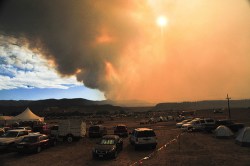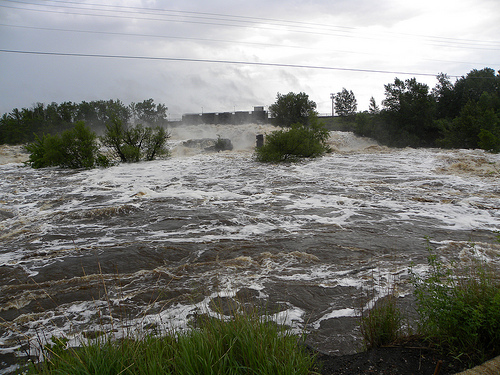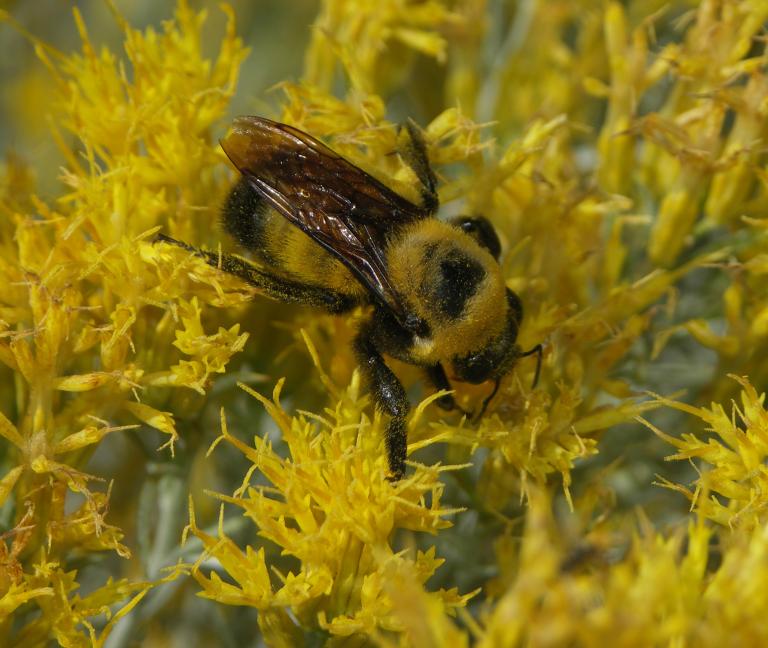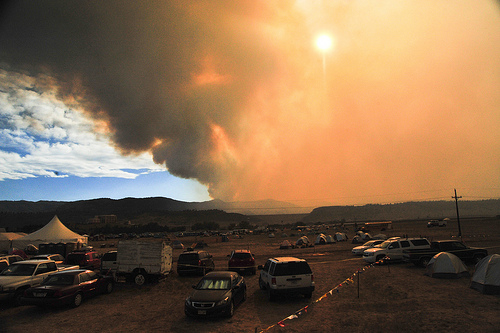
The High Park fire in Colorado. (Photo courtesy of the National Guard.)
It doesn’t make sense to me why we are so painstaking in not attributing severe weather events directly to climate change. I don’t mean intellectually; I get that climate change is a macro trend and that we can’t ascribe specific outliers to it. I’ve seen the walking dog video.
I mean more that I don’t get why we just don’t do it anyway. Point to something and say: “That’s climate change.” What are deniers going to say in response? “Scientifically, you can’t say that with certainty”? Because if that were the response, I would respond with a sober, academic, “LOL oh, now you are super respectful of science? SMH.”
But I know. We can’t say these things are due to warming. It’s intellectually dishonest. So with that I present to you:
Today in weather events that are clearly not related to climate change
Wildfires in Colorado and New Mexico
This is time-lapse video of the Little Bear fire near Ruidoso, N.M. To date, the fire has burned over 41,000 acres and destroyed 242 residential structures. Caused by lightning, it’s about 60 percent contained.
Then there’s the High Park fire in Colorado. Since we last checked in on it, 8,000 more acres have burned for a total of almost 70,000. It’s about 55 percent contained. It, too, was started by lightning.
There are literally dozens of forest fires burning in the United States right now. There are those who claim that climate change increases forest fires as warmer winters and reduced snowmelt creates drier conditions. (And an increase in forest fires, in turn, worsens climate change.) But those people are wrong. The problem here is too much lightning, probably because Zeus is mad about something, possibly the Greek economy.
Flooding in Minnesota
The heaviest two-day rainfall in a century and a half led to flash flooding in parts of Minnesota this week. Roads were washed out. Tragically, the Duluth Zoo was flooded, drowning a number of animals but also freeing a seal to wander the streets.

The flooded St. Louis River. (Photo courtesy of Minnesota Dept. of Public Safety.)
The National Weather Service explains the flooding as follows:
A cold front approached Minnesota from the High Plains on Sunday, June 17th and this front set off numerous thunderstorms through the evening. Duluth NWS received nearly an inch of rain (0.71”). The rains that fell on Sunday had indundated the soil, and created more saturated conditions than normal, which primed the Duluth area for runoff in the extreme rain event that we received. On Tuesday, June 19th another front slowly approached northeastern Minnesota. This front continually formed thunderstorms that developed over east central Minnesota and tracked northeast into the Duluth area, the north shore of Lake Superior and into northwestern Wisconsin.
I’ll warn you: The page linked above (this page), written by a meteorologist, also says that climate change “probably” was a factor in the flooding.
We can debate how much is a “natural cycle” vs. how much is the result of greenhouse gases, but there’s no denying that it’s getting warmer out there. Basic physics: a warmer atmosphere holds more water vapor. Our new reality: a warmer, wetter atmosphere is flavoring all weather now, a faint hum of atmospheric-muzak that makes droughts longer, heat waves more intense, and rainfall more extreme than it was for your parents and grandparents. Alarmist? We’ll see.
(Again, that’s from this page right here.)
Yes, it’s totally alarmist, Mr. Meteorologist! These are totally natural occurrences that could have happened any time, just not in the past 150 years. Granted, there’s a lot of evidence on that page in support of climate change. But those floods look totally normal to me.
And this looks like regular roadwork.
Another unthinkable Duluth picture.Looks like an earthquake hit. twitpic.com/9yp09k
— Seth Kaplan (@Seth_Kaplan) June 20, 2012
East Coast heat wave
I complained about this a lot yesterday, under the mistaken impression that it was going to be a 24-hour inconvenience. It is not. There’s a high pressure area in the North Atlantic referred to as the Bermuda High. It’s fairly static over the course of the year, shifting east and west. Right now, as Al Roker notes, it has shifted to the west, drawing up very warm air from the Caribbean and dropping it on the East Coast.
Here’s the reason why it’s so hot twitter.com/alroker/status…
— Al Roker (@alroker) June 21, 2012
Why’s the air so warm right now? Not because of global warming! Al Roker 1, Al Gore 0.
There you have it. A series of freak occurrences completely in line with predictions about the impacts of a warming world, all of which we cannot tie directly to global warming.
Will we ever know what caused all of these things? No, we won’t. But one thing is for sure: We should keep subsidizing oil companies.



